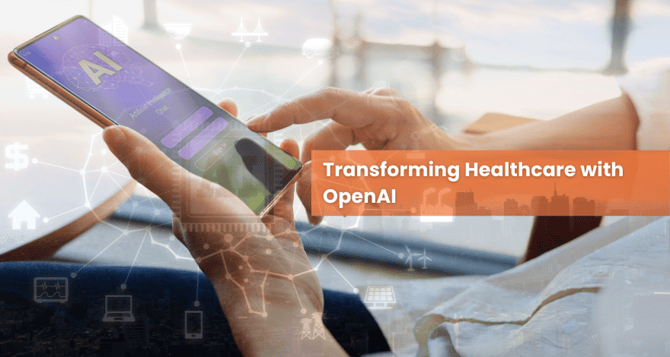Transforming Healthcare with OpenAI: Innovating Diagnostics and Care
This article explores how OpenAI is reshaping the healthcare landscape by revolutionizing diagnostics and patient care. It delves into the innovative solutions and technologies that are driving this transformation, highlighting the potential for improved healthcare outcomes through artificial intelligence and OpenAI's contributions.

Technological advancements are pivotal in enhancing diagnostics and patient care in the ever-evolving healthcare landscape. OpenAI, with its cutting-edge AI models, is at the forefront of revolutionizing healthcare practices. This article delves into the transformative impact of OpenAI in healthcare, exploring its principles and providing technical implementations using Node.js.
The Role of OpenAI in Healthcare Transformation
Healthcare is undergoing a paradigm shift with the integration of AI technologies. OpenAI's language models, equipped with natural language processing capabilities, are instrumental in automating tasks, improving diagnostics, and delivering personalized patient care.
Technical Implementation: Leveraging OpenAI for Healthcare Solutions with Node.js
Let's explore the technical aspects of integrating OpenAI into healthcare applications. For this example, we'll focus on creating an AI-driven medical chatbot to assist with patient queries.
Node.js Implementation
1. Set Up Your Development Environment
Begin by setting up your Node.js development environment and installing the required packages.
2. Create an Express Server for Medical Chatbot
Set up an Express.js server to handle requests for medical consultations using OpenAI.
3. Run Your App
Run your Node.js server using the following command:
Your medical chatbot system should now be accessible at `http://localhost:3000/medical-chatbot` or the specified port.
Applications of OpenAI in Healthcare
1. Automated Diagnostics
AI models can assist in interpreting medical images and diagnostic data, providing faster and more accurate results.
2. Personalized Treatment Plans
OpenAI's natural language understanding can contribute to creating personalized treatment plans based on patient history and preferences.
3. Medical Research Assistance
AI-powered tools can aid researchers in analyzing vast amounts of medical literature, accelerating the pace of medical discoveries.
4. Patient Education
Chatbots can provide patients with relevant and understandable information about their conditions and treatment options.
Considerations and Best Practices
1. Data Security and Privacy
When integrating AI into healthcare systems, adhere to strict data security standards to protect sensitive patient information.
2. Regulatory Compliance
Ensure compliance with healthcare regulations and standards, such as HIPAA, when developing AI solutions for healthcare.
3. Continuous Training
Regularly update AI models with the latest medical knowledge to ensure accurate and up-to-date information.
4. Human Oversight
Maintain human oversight in critical healthcare decisions, using AI to assist rather than replace medical professionals.
5. Interoperability
Strive for interoperability with existing healthcare systems to seamlessly integrate AI solutions into medical workflows.
Conclusion
OpenAI's influence in healthcare reshapes how diagnostics and patient care are approached. By leveraging the power of natural language understanding, developers can create innovative solutions that enhance medical consultations and automate routine tasks.
Accelerate Your OpenAI Journey!
Our generative AI experts are ready to guide you on your path to innovation. Let's discuss your unique needs and explore how AI can reshape your future.
The fusion of Node.js, OpenAI, and healthcare technologies propels the industry towards a future where AI is a valuable ally in providing efficient, personalized, and compassionate healthcare services.













